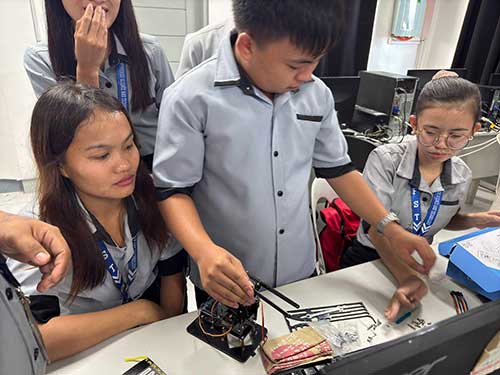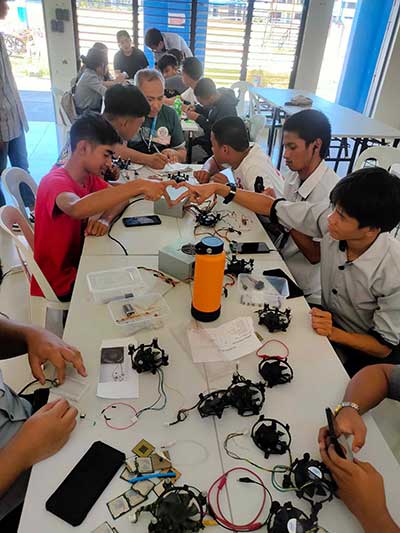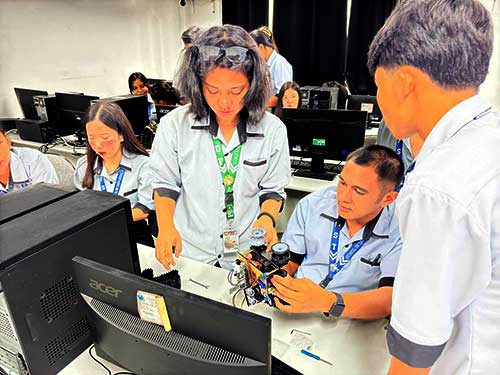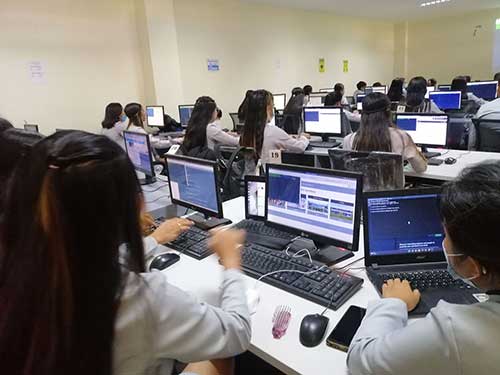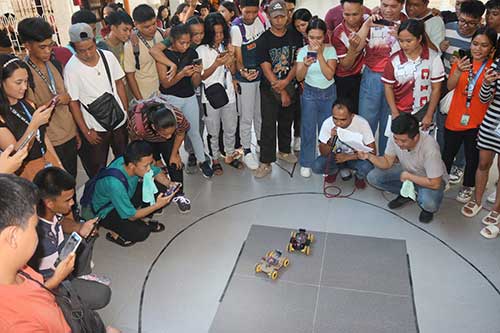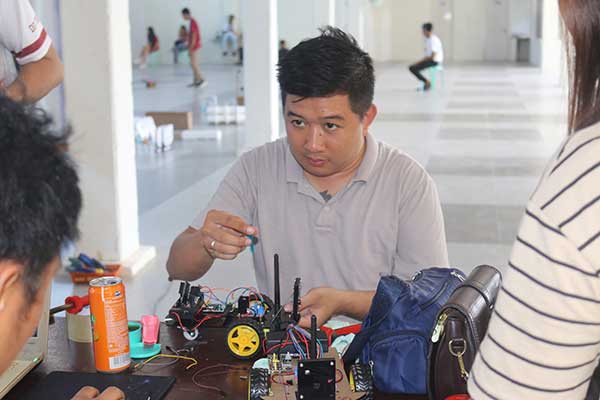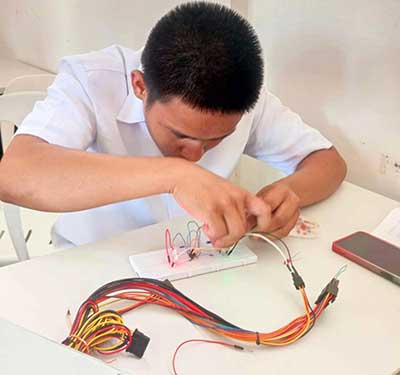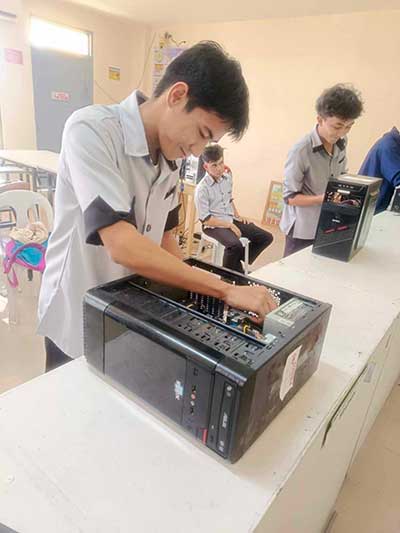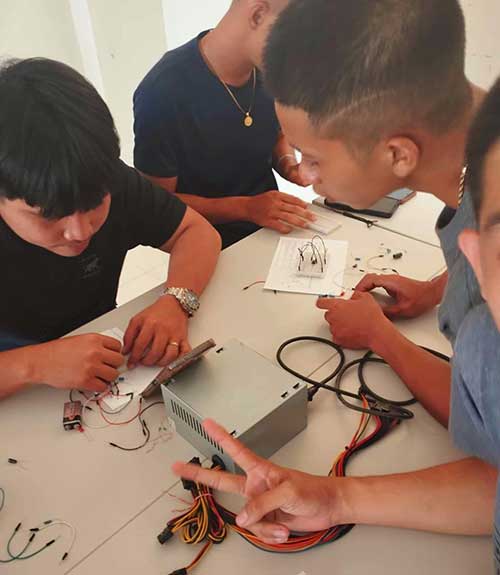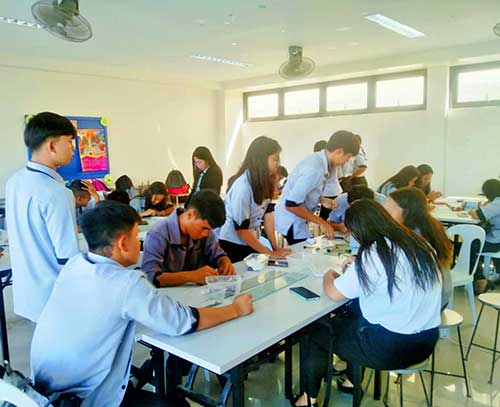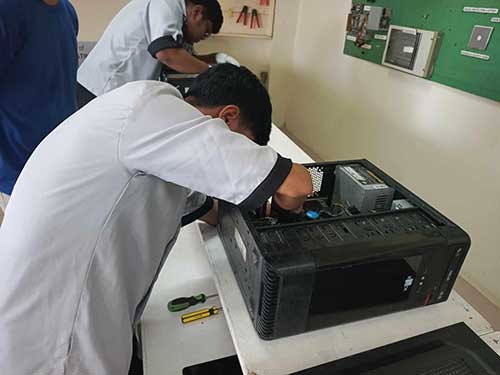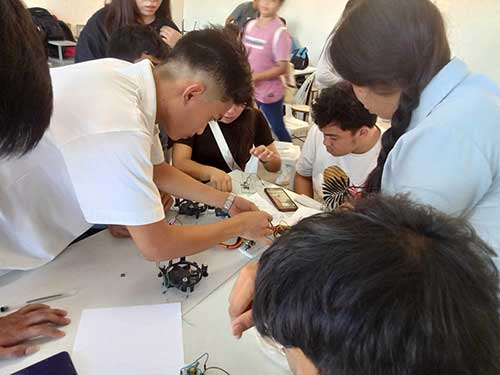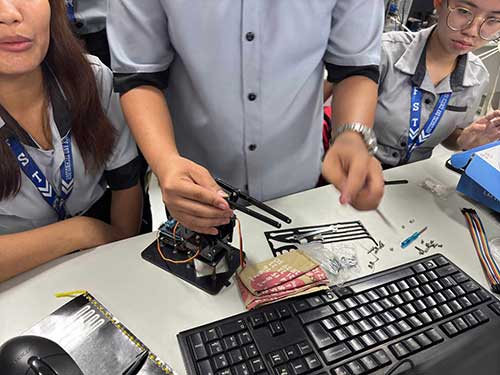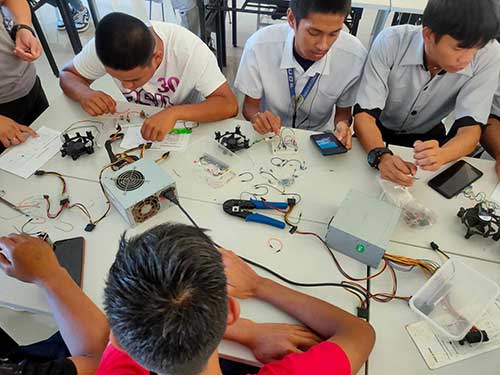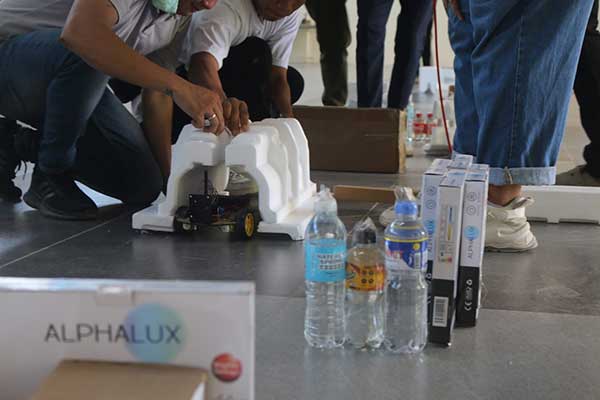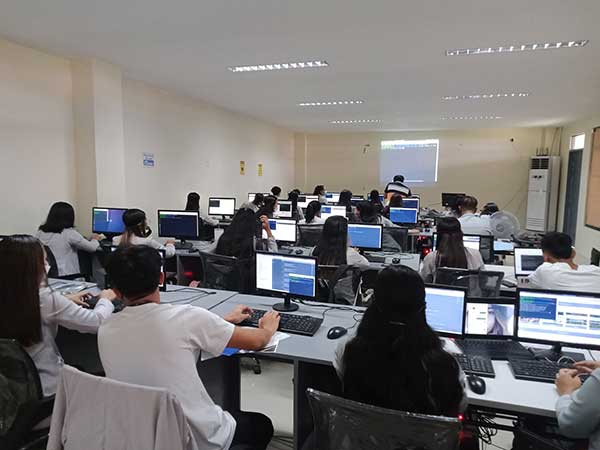Iloilo State University of Fisheries Science and Technology (ISUFST) has announced three innovative specializations in its Bachelor of Science in Information Technology (BSIT) program for the current academic year, the. With concentrated areas in Artificial Intelligence (AI) and Robotics, Web and Mobile Applications, and Network Technologies, the university hopes to satisfy the growing need for qualified IT professionals in the fast changing technological scene of today.
With the guidance of the top administration, deans Dr. Renante A. Diamante, Dr. Noel Caliston, Dr. Wenda Panes, and Dr. Jennifer Mamerto, are working together on this innovative endeavor. Emphasizing the call for these new offerings, Dr. Diamante of the College of Information and Communications Technology (CICT) at the Main Campus-Poblacion Site, stressed “We are responding to the industry’s critical need for professionals trained in these key areas,” he said. “The fast developments in artificial intelligence and robotics, coupled with the increasing relevance of network technologies and mobile applications, highlight the need of preparing our graduates for the future job market.”
Emphasizing the need of broadening the specializations in the BSIT program, Dr. Caliston of the Dingle Campus said, “The introduction of new specialties like AI and Robotics is a promising step toward enhancing both academic and professional opportunities for our students. Matching these specialties with industry trends will help us equip our graduates with the knowledge required to succeed in the cutthroat job market of today. However, it’s essential that we ensure we have the right resources, faculty, and infrastructure to support these programs and maintain the strong foundational IT knowledge all students need.”
Dr. Panes from the San Enrique Campus, for her part, expressed her strong support for the new AI and Robotics specialization, stating, “This specialization aligns seamlessly with ISUFST’s mission to produce globally competent and innovative professionals. By preparing students to master cutting-edge technologies like AI and robotics, we not only equip them to tackle local and global challenges but also contribute to the Philippines’ national development goals. This initiative reinforces ISUFST’s vision to lead in technological research and innovation, empowering our graduates to make a positive impact on society.”
On the other hand, Dr. Mamerto of the Dumangas Campus highlighted the importance of the new Web and Mobile Development track in the BSIT program, saying, “This specialization is a strategic move that equips our students with essential technical skills in a rapidly growing field. As industries increasingly shift toward digital solutions, expertise in web and mobile development becomes crucial for staying competitive. By offering this track, we are fostering not only career readiness but also innovation and creativity. Our graduates will be ready to help different industries and improve local communities by means of digital solutions.”
From its founding in 1998, the BSIT program has constantly changed to fit business needs.
Originally a broad program, it has changed significantly and now features tracks based on extensive curriculum reviews. In May 2023, the four information technology deans of the university from the Dingle, Dumangas, Main, and San Enrique campuses conceptualized the integration of emerging trends, culminating in the current specializations. “Our goal is to equip students not only with knowledge but with practical skills that align with both local and global industry demands,” Dr. Diamante added.
The deans collectively expressed their optimism for ongoing growth, emphasizing the university’s commitment to upholding high standards in student selection. “As we look forward to increased enrollment, we are dedicated to providing our students with the highest quality education possible,” they stated.
It is worth noting that while the Main Campus-Poblacion Site provides all three specializations for the BSIT degree programs, the Dingle campus will offer specializations in Web and Mobile Applications and Network Technologies. The San Enrique Campus will focus on AI and Robotics, while Dumangas Campus will offer Web and Mobile Applications as a specialization. It is also possible that the three campuses might offer other specializations in the next school year depending on the technical readiness of their instructors and the logistical capabilities of their respective colleges.
Out of the 8,500 students enrolled at ISUFST, 1,950 are pursuing a Bachelor of Science in Information Technology. Among these, 690 second-year IT students are already benefiting from the university’s innovative curriculum. The AI and Robotics track has enrolled 40 students from Poblacion and 85 from San Enrique, while the Web and Mobile Apps specialization includes 154 students from Dingle, 85 from Poblacion, and 128 from Dumangas. Additionally, the Network Technologies track has 106 students from Dingle and 92 from Poblacion.
ISUFST University President Dr. Nordy Siason, Jr. highlighted the broader impact of these specializations. “By providing these initiatives, we not only improve our academic offerings but also help our area to grow economically. Our graduates will be ready to spearhead creativity and address urgent technological issues, he said.
Vice President for Academic Affairs Dr. Joan Belga agreed, saying, “The launch of these specializations reflects our commitment to provide relevant, high-quality education that prepares students for the complexity of the digital age. The way our graduates will impact their local communities and the larger business excites us.
Within the AI and Robotics specializations, the new specialties center on important areas including machine learning, natural language processing, and robotics design. While the Web and Mobile Applications specialty stresses web development, web development, user experience design, and testing—ensuring students are well-prepared for real-world challenges—the Network Technologies specialty spans network architecture, security protocols, and network management.
Clearly, including extra important areas like cloud computing, data science, and cybersecurity highlights how sensitive the program is to local and global industry standards. “We are committed to building a culture of ongoing improvement, which is necessary for equipping our graduates with the skills they need to excel in today’s rapidly changing technological landscape,” Dr. Belga underlined.
It is interesting to note that for many young people the emergence of these specialties offers exciting career routes. Jobs in robotics engineering, data analysis, and app development are opening as sectors adopt AI-driven solutions and automation more and more. Startups in these fields are becoming popular, allowing would-be business owners—particularly in tech hubs and metropolitan centers—to start creative companies that meet local needs.
For people living in underprivileged regions especially, this expanding terrain is quite valuable since access to resources and training can enable them to engage in the digital economy. By embracing these technologies, they can develop skills that open doors to remote work or entrepreneurship, fostering economic growth in their communities.
Ultimately, this shift not only enhances employability but also promotes inclusivity and social mobility, helping to bridge the digital divide.
As ISUFST continues to adapt its curriculum in alignment with technological advancements as part of its institutional mission, it stands as a beacon of educational excellence, committed to nurturing the next generation of IT professionals ready to lead in a dynamic global environment. (Photos from IT Deans/Text by Herman Lagon/PAMMCO)


















